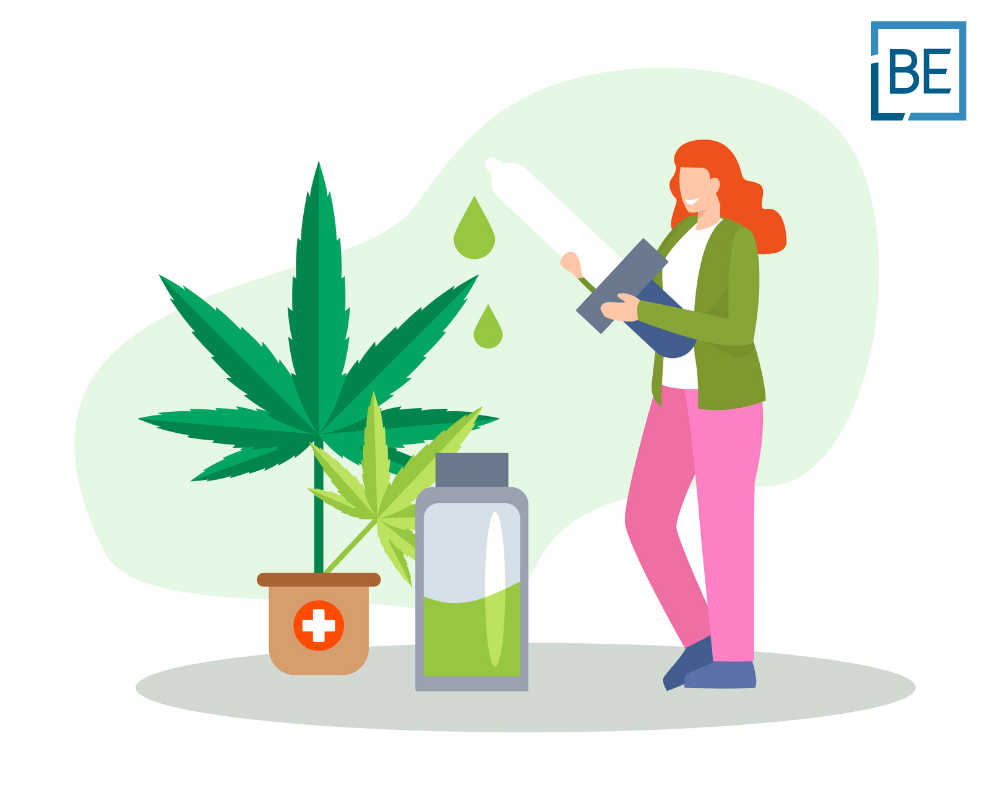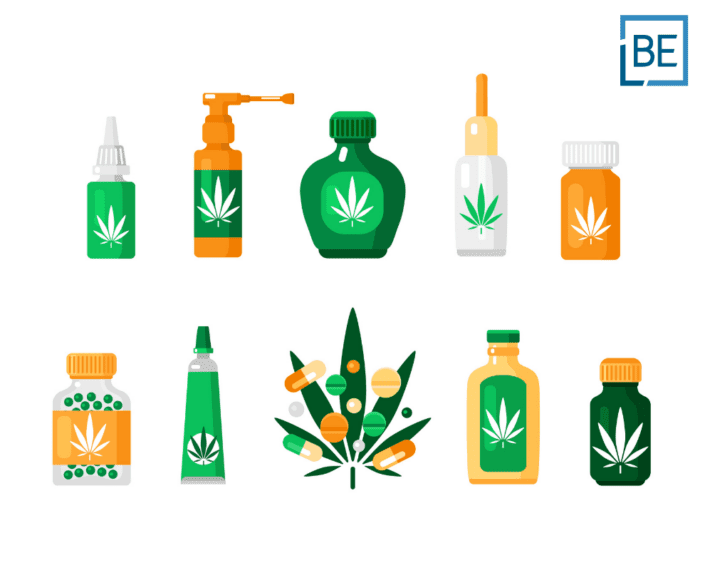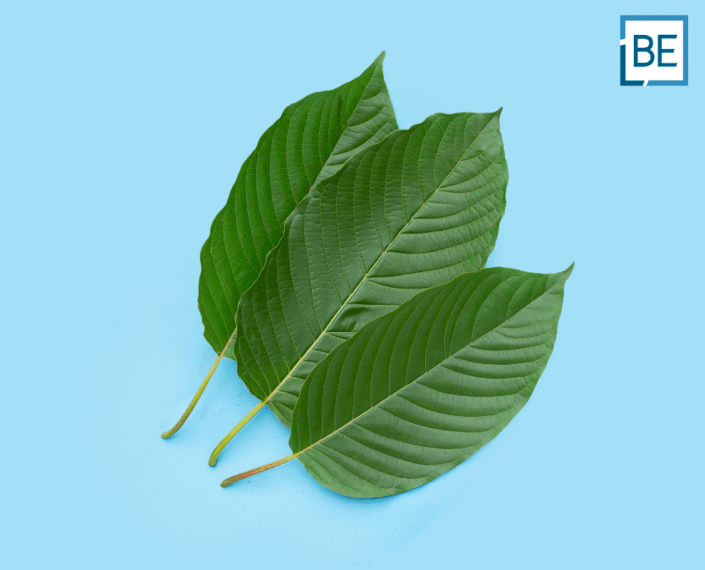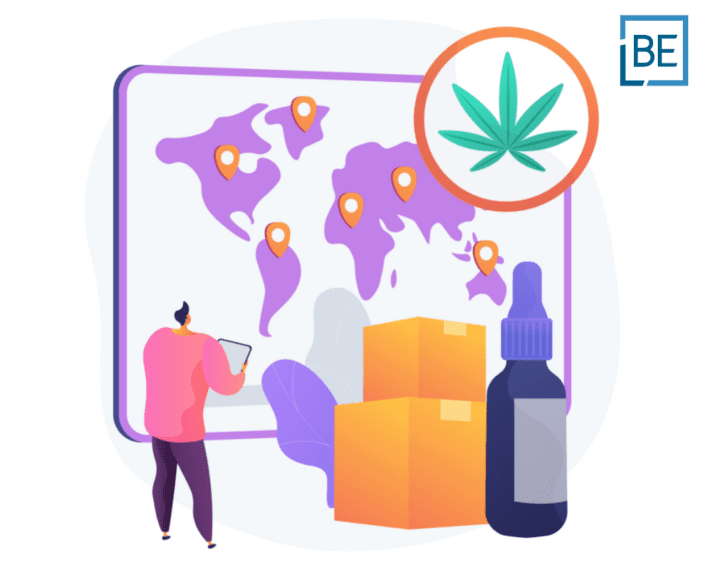Legal
Proposed Cannabis Laws in Thailand: What is Going to Change in 2025?
21/10/2024
In a groundbreaking move, Thailand made history in 2022 by becoming the first country in Asia to decriminalise cannabis.
Since then, Thailand has found itself at the centre of a complex debate about how to regulate Cannabis. The government and public has been struggling to strike a balance between public health concerns, economic opportunities, and changing social attitudes toward cannabis.
In September 2024, the government announced a new legislative proposal was under consideration in relation to the Cannabis Laws. This proposal could reshape how cannabis is used and commercialised in Thailand.
Key points
- Thailand is considering new regulations that would maintain legality but introduce stricter controls, particularly for recreational-cannabis
- The proposed bill would tighten licensing rules for cultivation, sales, exports, and imports of cannabis, requiring existing businesses to obtain new permits.
- Foreign ownership of cannabis businesses in Thailand is restricted, with Thai shareholders required to own more than 50% of a company’s share capital.
- Various licenses are required for different cannabis-related activities, including production, distribution, processing, export, and import.
What is Contained in the Proposed Cannabis Regulation Bill?
As the marijuana industry in Thailand has became so popular, the government recognizes the need to establish a regulatory framework. The newly proposed bill, drafted by the Ministry of Public Health, aims to keep the plant legal but introduce stricter controls. The key provisions include:
Allowances for Medical and Research Purposes
The new cannabis laws states that medical-cannabis and its extracts will continue to be permitted for use in medical treatments and research conducted by state agencies.
Restrictions on Recreational Use
While the previous draft had explicitly banned recreational-cannabis use, the new bill appears to take a softer stance. However, there is still a heavy restriction being placed on recreational use. The new bill no longer contains a clause prohibiting non-medical consumption, effectively allowing for a more balanced approach to personal use.
The regulation permits that the following:
- Medical Treatment: Medical-Cannabis is permitted for us in treating, curing, or relieving human ailments, as well as for disease prevention. Prescriptions for medical-cannabis products must be done under the supervision of licensed professionals, including doctors, dentists, veterinarians, and practitioners of traditional Thai and other recognized medical practices.
- Scientific Research: Authorized government agencies and institutions may use medical-cannabis for research and educational purposes, including the study of the medical, pharmaceutical, or scientific benefits of cannabis.
- Commercial Products: Recreational-cannabis can be used in products such as herbal remedies, medicines, food, and cosmetics. These products must adhere to all relevant laws such as the Herbal Product Act, Medicine Act, and Food Act.
Please note, we expect more detailed information to be released in the upcoming weeks, please make sure to follow us for more information.
Licensing and Compliance Requirements
The proposed bill introduces the tightening of licensing rules relating to the cultivation, sales, exports, and imports of marijuana. Current growers, suppliers, and related businesses will be required to obtain new licences or permits, or face significant penalties.
A Cannabis Regulatory Board will also be established to oversee the industry. This board will be led by the Minister of Public Health. The board will issue licences, set regulations, and offer guidance.
The biggest change is in relation to cultivation licence. Under the new regulations Cultivation licences will be categorised based on land size:
- Small-scale: Up to 5 rai (~1.98 acres / 0.8 hectares).
- Medium-scale: Up to 20 rai (~7.9 acres / 3.2 hectares).
- Large-scale: Up to 400 rai (~158 acres / 64 hectares).
Businesses will also need to follow these rules as per the new regulation.
Prohibited Sales Methods
Marijuana cannot be sold using the following methods:
- vending machines,
- online platforms, or
- promotional activities such as giveaways, discounts, or bundling with other products.
- Peddling or exchanging cannabis for goods or services is also forbidden.
Sales in Commercial Products
Medical and recreational-cannabis may be sold as an ingredient in products such as:
- herbal remedies,
- Medicines,
- food, and cosmetics
Penalties for Unauthorised Use and Sales
The legislation introduces fines and imprisonment as deterrents for those who consume marijuana or its extracts for purposes not specified in the bill. Sellers of cannabis products that encourage unauthorised uses will also face similar punishments.
We expect to receive more details soon, we will update this post accordingly.
What are the Challenges and Considerations Raised from the New Regulations?
The proposed regulations present both opportunities and challenges for the industry and the public. While it offers a more favourable future for the cannabis sector, it may also pose significant challenges for the existing businesses that have started since decriminalisation.
Impacts on Existing Businesses
The new licensing requirements and restrictions on product usage and consumption may force many of the 9,400+ marijuana dispensaries across Thailand to adapt or face fines or possible closure. However, the implied removal of the banning of recreational use is good news for businesses.
Businesses with the current cultivation licence must apply for a new license within 60 days of the bill becoming law. These businesses may continue to run their activities while their application is being reviewed.
The other forms of licenses will continue to be recognized and valid until their original expiration. The renewal process will follow the new rules.
Can a Cannabis Business be 100% Foreign Owned in Thailand?
Generally, cannabis businesses can only be undertaken by a Thai company (a company registered in Thailand with Thai shareholder(s) owning more than 50% of the share capital).
The Thai government has imposed these restrictions to safeguard local businesses against foreign entities with greater resources and access to modern technology. The regulations aim to prevent an influx of foreign players from dominating the market. Additionally, several activities, such as farming and selling food and beverages, are already subject to the restrictions of the Foreign Business Act (FBA). For example, growing cannabis would be considered ‘farming,’ a restricted activity under the FBA.
Furthermore, cannabis businesses are subject to obtaining several licenses, including:
– Import License to import cannabis seed
– Production License to produce cannabis plants
– Distribution License to sell cannabis products (retail or wholesale)
What are the Main Types of Cannabis Licences?
The cannabis industry in Thailand is highly regulated and different licences are required for certain activities. Which licence you need depends on the activity you carry out. The licensing process is typically a multi-step process with various requirements to the applicant, its shareholders, and its business operations.
Licences for distribution, export, and processing are valid for three years. Licences can be renewed 60 days before the expiration. As it stands, the licence for the production of cannabis does not have a fixed validity period and will not expire, however this may change in the future.
Please note that the above-mentioned licences only cover activities relating to cannabis flowers/leaves. The distribution, import, and export of the other parts of a cannabis plant that can be used for cultivation are subject to a controlled seeds licence from the Plant Controlled Department.
Production licence
Cultivating cannabis requires a production licence from the Thai FDA. The licence is applicable for each cultivation site. If you wish to have a few locations for cultivation, you must have a licence for each cultivation site.
Distribution licence
The sale of cannabis flowers/ leaves is subject to the business obtaining a distribution licence from the FDA. Other parts of the plant such as seeds or the stem will require the business to obtain a controlled seed distribution licence from the Plant Quarantine Department.
Please note, the requirement for obtaining a Distribution licence applies to both wholesale and retail businesses.
Processing licence
The processing of cannabis requires a licence from the FDA. When processed marijuana is used in producing other products, a licence must be obtained from the relevant authority. For example, producing cannabis beverages, the producer must apply for a beverage production licence.
Export licence
Exporting cannabis flowers/leaves is subject to the export licence from the FDA. Other parts of the cannabis plant, such as the seed or stem, will require a controlled seed export licence with the Plant Quarantine Department.
Import licence
You can only import certain parts of the cannabis plant e.g. the seeds and stem. Such production is subject to licence requirements from the Plant Quarantine Department. The importer must provide such a licence to the Customs Department before the importation.
It is not possible to import other parts of the plant.
What is the Best Way for a Foreign Entrepreneur to Start a Marijuana Business?
The quickest and most effective way for foreigners to start a Ganja business in Thailand is by establishing a Thai Limited Company. However, to comply with the FBA’s ownership rules, 50% of the company’s share capital must be owned by Thai shareholders. Companies established as a joint venture with local Thai partners are considered Thai companies and are not subject to the restrictions imposed on foreign-owned companies.
Please note the use of nominee shareholders is expressly prohibited in Thailand. For more information about a Thai Limited Company, please see:
What Activities Can a Cannabis Business in Thailand Do?
Ganja businesses in Thailand can undertake the following activities:
Growing/cultivating cannabis
In Thailand, only Thai nationals are allowed to grow marijuana plants, with no limit on the number of plants that can be cultivated. However, the government encourages individuals to register their plants through the ‘Plookganja’ website or application to obtain a growing licence. While businesses cannot register to farm cannabis directly, stakeholders can register on their behalf. The registration form includes a section declaring the purpose of growing cannabis, with a “commerce” option available.
Cultivating Marijuana requires a production licence from the Thai FDA. The licence is applicable for each cultivation site. If you wish to have a few locations for cultivation, you must have a licence for each cultivation site.
Selling Cannabis and Products that Contain Cannabis
When selling food, drinks, or cosmetics that contain cannabis extract, it is essential to ensure that the product does not contain more than 0.2% THC, as required by the law.
However, it is unclear whether the THC content must be below the 0.2% threshold when using marijuana plant components, such as stems, leaves, or other parts, instead of extract. An important consideration in relation to this is that under the current regulations there is an accepted loophole where the flower is not considered extract. By not considering the flower as extract, shops and businesses are able to sell marijuana flowers with a higher level of THC. From our current understanding of the proposed amendments, there is no mention of anything to suggest any changes to this stance, so we may assume that the government will continue to have the same understanding and continue to allow the flower to be sold for recreational use but this remains to be seen.
Although no cannabis-related licence is required for businesses manufacturing or selling such products, they must comply with other licensing and regulatory requirements, including obtaining a food production licence from the Thai FDA.
As a controlled herb, cannabis flowers cannot be sold without obtaining a distribution licence from the Thai FDA. Furthermore, cannabis flowers cannot be sold to certain categories of people, including:
- students,
- individuals under 20 years old, and
- pregnant or breastfeeding women.
Companies should note advertising cannabis products is strictly prohibited, and the sale of Ganja is prohibited in the following ways:
- temples,
- hostels,
- public parks,
- vending machines,
- online platforms,
- and amusement parks.
Cannabis flowers can only be sold in physical stores, and purchases cannot be consumed on the premises.
Businesses licensed to sell cannabis flowers must maintain detailed records, including inventory, sources, and intended use, which must be submitted to the Ministry of Public Health.
Importing/Exporting Cannabis
Thailand’s regulations allow only the importation of seeds, which must be approved under the Plant Propagation Act and Plant Quarantine Act.
An export licence is available for exporting cannabis-flowers from the Thai FDA, but it is restricted to medical marijuana and subject to strict criteria. Additionally, exporting seeds, stems, and other derivative products with less than 0.2% THC will require the Department of Agriculture and the FDA approval.
How can Belaws help?
For more information about starting a cannabis business in Thailand why not talk to one of our experts now?
Please note that this article is for information purposes only and does not constitute legal advice.
Our consultations last for a period of up to 1 hour and are conducted by expert Lawyers who are fluent in English, French and Thai.
Consultations can be hosted via WhatsApp or Video Conferencing software for your convenience. A consultation with one of our legal experts is undoubtedly the best way to get all the information you need and answer any questions you may have about your new business or project.
USD 150
Up to 1 hour
Online payment (Paypal or Credit card)
Legal consultation can be conducted in English, French or Thai
Legal consultations are handled by experienced lawyers from the relevant fields of practice
Frequently asked questions
Is cannabis still legal in Thailand?
Cannabis laws in Thailand are changing. Starting January 1, 2025, cannabis will be reclassified as a narcotic, with restrictions on recreational use
Can I still use cannabis for medical purposes in Thailand?
Medical-cannabis use is expected to remain legal, but with stricter controls and licensing requirements
What are the penalties for recreational cannabis use in Thailand?
The proposed laws include fines of up to 60,000 Thai baht and potential prison sentences for recreational use.
Can I grow cannabis at home in Thailand?
Home cultivation rules are being revised. Small-scale growers may need to notify authorities, while larger operations will require licenses.
Are CBD products legal in Thailand?
CBD products with less than 0.2% THC extracted from Thai-grown plants are currently not classified as narcotics, but regulations may change.
Can foreign companies invest in Thailand’s cannabis industry?
Foreign investment opportunities may be limited under the new regulations. It’s essential to consult with local legal experts for the most current information.
What licenses are required for cannabis businesses in Thailand?
Licensing requirements are being updated. Different licenses may be needed for cultivation, processing, and sales, with varying fees and conditions
How will the new laws affect existing cannabis businesses?
Existing businesses will likely need to adapt to new regulations, potentially requiring changes in operations, product offerings, and marketing strategies.
Can I advertise cannabis products in Thailand?
Advertising restrictions are expected to tighten. Digital marketing strategies may need to be adjusted to comply with new guidelines.
When will the new cannabis laws take effect in Thailand?
The proposed changes are set to take effect on January 1, 2025, but some regulations on Cannabis may be implemented sooner.
Related articles
Subscribe today
Subscribe today
To our newsletter for all the latest legal news
in South East Asia, Belaws updates and
special promotions on our services.
To our newsletter today for all the latest legal news in South East Asia,
Belaws updates and special promotions on our services.







